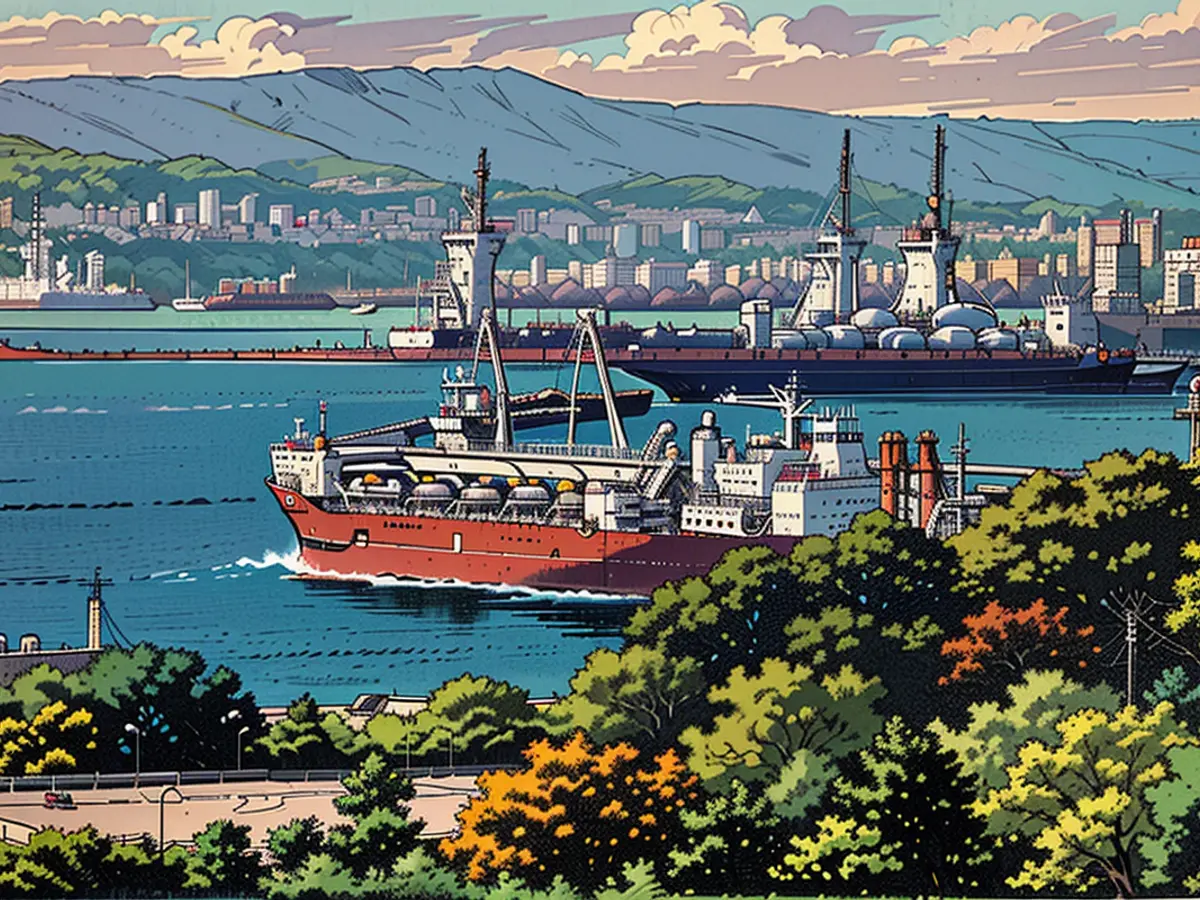Scholz will lay Russia's shadow fleet under control
The West imposes sanctions on Russian oil. Yet, the Kremlin increases exports to markets of friendly countries. To counteract this, Chancellor Scholz announced that Germany will intensify the fight against the old oil tankers that Russia uses for its oil exports. "Russia is trying to export oil using quite old tankers it has acquired through straw men on the world market and finance the war against Ukraine," Scholz said.
"These middlemen pose a risk to maritime security and of course to our seas and the environment," Scholz added. The EU has already reacted with sanctions. "Now we want to bundle our forces in a global coalition to bring this shadow fleet under control," the Chancellor stated.
Russia is particularly significant on world markets in diesel production. Although the EU banned the import of oil products from Russia last year, countries like Turkey and Brazil have bought significantly more diesel. According to official figures, the oil export to India and China could have been increased.
India is Russia's largest oil consumer
Russia increased its oil deliveries to India by 22 times in the previous year against the backdrop of Western sanctions. According to Vice Premier Alexander Novak, speaking to the Interfax news agency at an Energy Ministry meeting in Moscow in late March, India has become Russia's largest oil consumer.
"India is our key market, and as of today, India is one of our key partners in the energy sector," Novak added. Russia reportedly supplied India with 90 million tons of oil in the previous year. "That's 40 percent of India's total demand." The deliveries had reportedly doubled by 2022.
India takes a pragmatic stance on the Ukraine war: New Delhi calls for a diplomatic solution but does not condemn the attack and does not participate in sanctions. On the contrary, due to the low price of Russian oil as a result of Western sanctions, India buys the commodity in large quantities.
Largest shadow fleet built worldwide
To redirect energy exports away from Europe, it appears that further measures are necessary. Novak therefore called for the expansion of Russia's own tanker fleet. Russia has already built one of the largest shadow fleets in the world: The resource power has bought up numerous old oil tankers to ship its resources despite the sanctions following the Russian attack on Ukraine.
However, payment and insurance issues need to be addressed. Moscow intends to switch from payments in dollars to transactions in national currencies. Domestic insurance companies are expected to replace the dominant Western providers on the freight market. Novak also plans to increase the export of liquefied natural gas, as pipelines to Europe have largely been shut down. To achieve this, LNG projects need to be advanced, he demanded.
Russia has initiated several projects and delivers large quantities of LNG, for example, from the Yamal Arctic Peninsula to China. However, these projects involve billions of investments and high expenditures. Both present challenges for Russia due to sanctions.
- Despite the West imposing sanctions on Russian oil extraction, Olaf Scholz noted that Russia has increased exports to friendly countries by using old oil tankers, posing risks to maritime security and the environment.
- India, being Russia's largest oil consumer, significantly increased its oil deliveries from Russia by 22 times last year, making up 40% of India's total demand, as Russia navigates around Western sanctions.
- To circumvent sanctions and redirect energy exports, Russia has built one of the largest shadow fleets worldwide, acquiring old oil tankers for shipping, and plans to switch from dollar payments to transactions in national currencies, hoping to overcome insurance and payment issues.








